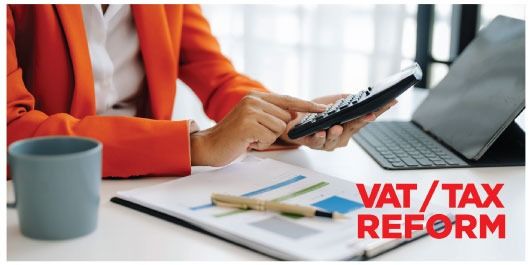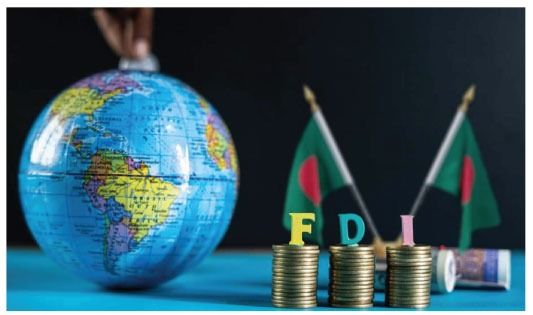- info@ficci.org.bd
- |
- +880248814801, +880248814802
- Contact Us
- |
- Become a Member
- |
- |
- |
- |
- |

Introduction
At the end of last December, the London-based Center for Economics and Business Research (CEBR) forecast that Bangladesh will become the world's 20th largest economy by 2038. It will move up rapidly in the World Economic League Table (WELT) rankings in the next 15 years. According to the forecast, the future economic progress of Bangladesh has shown strong potential for attracting foreign investment as well as improving Bangladesh's diplomatic relations with those countries. Also the World Bank (WB) ranked Bangladesh the 32nd largest economy on the planet based on gross domestic product (GDP). Despite severe economic headwinds owing to social complexity and political instability, it has continued to grow.
Bangladesh has enormous potentials like a young, and hard-working workforce (demographic dividend), a strategic location between the large South and Southeast Asian markets, deep sea port and a vibrant private sector to become fastest-growing economies in the world.
In order to mobilize resources for development through utilizing these potentials, prudent fiscal policies are crucial as they influence how resources are allocated, impacting economic growth, stability, and overall well-be- ing. We believe, a well-designed fiscal policy can foster growth, improve public services, and reduce poverty.

FDI and Economic Growth: Bangladesh Perspective
Foreign Direct Investment (FDI) is crucial for its economic growth, acting as a potent tool for development. Undoubtedly, FDI has long been recognized as a key driver of economic growth, technology transfer, and job creation, especially for emerging economies.
But attracting FDI is always a struggle for Bangladesh. According to the Daily Star's report, the flow of FDI in Bangladesh fell to $104.33 million in the July-September quarter of fiscal year 2024-25, the lowest in at least six years. It is 71 percent less foreign investment year-on-year. Moreover, compared to regional peers, it has low FDI as a percentage of GDP. This low level and decline in foreign investment are not just economic issues but reflections of deeper structural and governance challenges including fiscal policies and tax regulations.
We believe that reshaping fiscal priorities and eliminating tax burden could be a lucrative offer for prospective investors.
Evolution of Fiscal Policies and Tax Regulations Supporting FDI Growth
Since the 1990s Bangladesh's fiscal policies have been steadily transitioned from a restrictive regime to a more liberal and open one. Recognizing the importance of private sector investment, it has undergone a series of reforms to simplify business procedures. Bangladesh has signed Bilateral Investment Treaties (BITs) with over 30 countries and has joined international investment-related organizations such as the Multilateral Investment Guarantee Agency (MIGA) and the International Centre for Settlement of Investment Disputes (ICSID), with a view to enhancing investors' confidence in the country.
We have seen a number of fiscal and other incentives were given to entities in Export Processing Zone and Economic Zones in the country which included tax holiday, duty free import of raw materials, duty free of import of capital machineries, bonded warehouse facilities, cash incentives for export, repatriation of capital and dividends, repatriation of salaries of foreign management staff members, quota-free and duty-free market access to developed and developing world for our products, relaxed rule of origin of products etc. But, despite such incentives the inflow of FDI in our country has not increased significantly. The reason is that policy shifts or strategic initiatives are affecting the capital inflows and the investor confidence. While Bangladesh does offer some fiscal incentives, they are generally seen as less competitive in comparison. Moreover, as you may know, the National Board of Revenue (NBR) is currently moving away from broad-based exemptions and tax holidays, shifting toward a more streamlined and restrictive incentive regime. This shift could have significant implications for future investor interest, we have a great apprehension on this move.

Here we could refer to Vietnam as a case study. The country has successfully attracted substantial foreign direct investment by offering targeted tax incentives, including corporate income tax reductions, tax holidays, and import duty exemptions in key sectors such as manufacturing and technology. This strategy has made Vietnam a competitive destination for global investors and could offer useful insights for our context as well.
In our country we observe frequent changes in tax laws, duties, or investment rules which discourage foreign investors. The investors always expect a consistent and long-term fiscal and investment policy to continue with their business through a decision. Because these inconsistent fiscal policies undermine trust and increase perceived risk. Moreover, bureaucratic hurdles and poor coordination among regulatory bodies reduce the overall attractiveness of investments.
Currently, Bangladesh's tax-to-GDP ratio remains among the lowest in the world, hovering around 8-9%. This reflects not only an underdeveloped tax collection infrastructure but also complex, inconsistent, and opaque tax policies.
Bangladesh imposes relatively high corporate tax rates compared to regional competitors like Vietnam and India. While there are sector-specific incentives, the base rate often discourages broad-based investment. Slow adoption of alternative dispute resolution mechanisms and corruption also hinder foreign investment. The unpredictability in tax enforcement, delays in VAT refunds, and frequent policy changes without proper stakeholder consultation undermine investor confidence.
The Way Forward: Reforms Needed to Catalyze Greater FDI
The interim government constituted an advisory committee for reforms of NBR which was a laudable initiative. Policy separation should get priority in reforms of NBR. The IMF recommended a separate policy wing of the National Board of Revenue (NBR) to ensure an effective tax system. While formulating the policies, implementing of the following initiatives will be a sine qua non for attracting more FDI.
• Need to set a predictable tax policy and ensure its consistency, so that investors and the Businesses plan on the basis of existing policy. if sudden changes are made within six months that would discourage both local and foreign investment.
• Need a clear pathway to restore investors in business in Bangladesh through ensuring discipline in revenue management and public expenditure. Without confidence being restored among local investors, why would foreign investors come to Bangladesh to invest?
• Address structural and operational issues, Bangladesh must prioritize comprehensive reforms to its fiscal and tax systems.
• Introduce a simplified and lower corporate tax regime aligned with regional competitors to enhance attractiveness. It is a long due issue and we hope reform committee brought this matter and NBR will take action.
• It is required to re-design investment incentives to be performance-based, time-bound, and sector-specific with clear eligibility and access criteria.
• Need to Promote Tax Treaties and International Standards through strengthening the application of DTTs and aligning tax regulations with OECD and WTO norms to enhance international credibility.

Conclusion
Our present Government is giving highest priority on attracting more FDI. Recent Bangladesh Investment Summit 2025 organized by the Bangladesh Investment Development Authority (BIDA) instigates a new hope for more foreign investment in the country. But it may not happen overnight. First, the government should improve the Ease of Doing Business index. A coordinated approach-bringing together fiscal reform, policy predictability, and investor facilitation-is essential for that to unlock the full potential of FDI in driving inclusive and sustained economic development. But what is needed the most is pro-people political will and stability.





